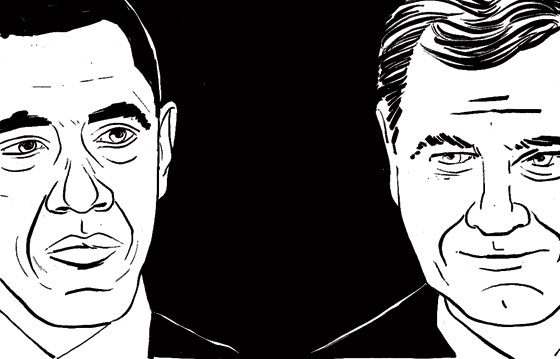
After Paul Clement wiped the floor with Donald Verrilli at last week’s Supreme Court oral argumentson the Affordable Care Act, Democrats awakened to the possibility that President Obama’s signature legislativeachievement may well be struck down. That prompted two responses. First, they panicked. Then, they strategized—with some in the party suddenly salivating at the prospectof Obama running for reelection not only against Mitt Romneyand the House Republicans but against the Court as well.
It would certainly be a novel move for a Democrat—even FDR didn’t go negative on the justices during the 1936 presidential campaign, waiting until after he’d won reelection to reveal his plan to pack the bench with his picks—and it poses a novel dilemma for the Supreme Court. Ever since Earl Warren wrote the opinion desegregating America’s schools in 1954, the Court has generally been perceived as more liberal than conservative—an institution, as the historian David Garrow puts it, devoted to “protecting individual liberties and minority rights.” As such, it’s tended to be held in lower regard among Republicans than Democrats. And whether it was Richard Nixon in 1968 lambasting the Court for “hamstringing the peace forces in our society and strengthening the criminal forces” or George W. Bush in 2000 blasting it for having “usurped legislatures” with its abortion decisions, Republican presidential candidates have attacked the Supremes to rally their base.
Now Obama may be able to try the same trick. Bush v. Gore began souring Democrats on the Supreme Court; subsequent decisions, such as Citizens United v. FEC and one striking down school-desegregation plans in Louisville and Seattle, made liberals even more suspicious of the Court’s impartiality. So much so that a Gallup poll in September found that only 46 percent of Democrats approve of the Court, down from 75 percent in 2009. Were the Court to strike down Obamacare, Democrats’ feelings for the Court would undoubtedly sink lower still.
Obama has already taken some shots at the Court, most famously during his 2010 State of the Union address, when he criticized the Citizens United decision for having “reversed a century of law to open the floodgates for special interests—including foreign companies—to spend without limit in our elections” as a black-robed Justice Samuel Alito shook his head and seemed to mouth the words “Not true.” Those would be tame, however, compared with the charges he’d level if forced to explain away the downfall of his signature legislative achievement. Having the president railing against unelected justices who rule by ideology rather than jurisprudence might not alter the outcome come November, but it would undoubtedly increase the ill-will toward the Court.
That’s a possibility that Chief Justice John Roberts has almost certainly considered, and that’s why, despite the gloom over the fate of Obamacare, it still seems possible, even likely, that the Court will uphold part if not all of the legislation. A library’s worth of scholarship has shown that the Court is keenly aware of public opinion, and Roberts has proved no exception. Just last year, following criticism of some of the justices’ perceived conflicts of interest, he devoted most of his State of the Judiciary Report to issues of recusal. With the public’s trust of the judicial branch tying a historic low of 63 percent, down thirteen points from just two years ago, it’s doubtful that Roberts—who has wanted to be seen as an impartial “umpire”—would choose to imperil that trust even further with a ruling that would place the Court squarely in the election-season crossfire. Overturning Obamacare would be a political decision. But so, in its own way, would upholding it.
Have good intel? Send tips to intel@nymag.com.